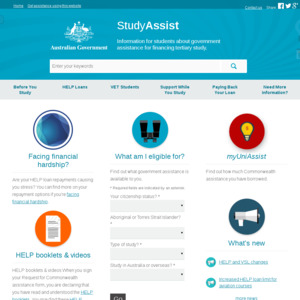Hi All,
For those that have a HECS debt, I'm curious to know how you are dealing with it. I was always told to just let the tax system do its thing and not pay anything extra, however I've recently logged in to have a look at my debt and noticed that the balance has basically not moved in the past 2-3 years because the indexation applied is about equal to the compulsory repayments. Anyway, so I'm now considering to top up some of the repayments. For those that do pay above the compulsory repayments, approximately how much extra are you adding? If it makes a difference, my HECS debt is above $50,000. :( Any general advice/strategies for paying off the HECS debt would also be appreciated. Is it really still a good idea to not pay anything extra? Doesn't feel great that I've paid a few thousand but the overall balance hasn't moved.

I'm waiting til the government get desparate and offer a decent discount on voluntary oaymebts, and then I'll pay it out. At this point, the money is better off in my redraw reducing my interest payments.